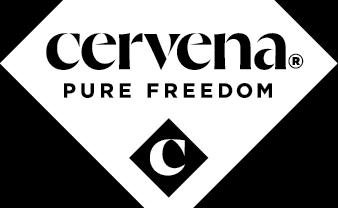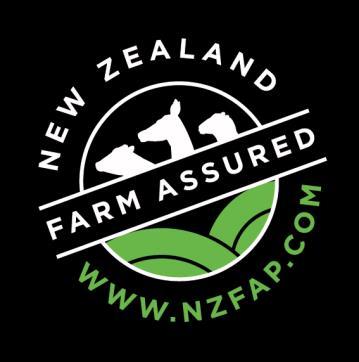
4 minute read
Animal Health, Welfare and Production
Definitions
Requirements
Shall –refers to all New Zealand codes or statutes (e.g. animal welfare codes). Indicates a mandatory obligation. Failure to comply with them will result in Corrective Action Requests (CARs) being issued and may result in exclusion from the scheme until CARs have been closed. Be aware that failure to comply with legal requirements such as regulations may also result in penalties such as a fine and/or criminal conviction. Must –refers to obligations arising from commercial requirements. Failure to comply with them will result in CARs being issued and could result in exclusion from the scheme until CARs have been closed.
Recommendation
Should –refers to a practice which is recommended as a means of complying with a statutory or programme requirement. More than one practice may be recommended. It is up to the farmer to select the practice which best suits the circumstance or even come up with another satisfactory way of meeting the requirements.
Farm
Farm –one or more blocks of land, no more than 20kms apart that are managed as one entity including one set of farm policies and records. Note: this is different to the NAIT definition.
Joint Accreditation System of Australia and New Zealand (JAS-ANZ)
JAS-ANZ is the government-appointed accreditation body for Australia and New Zealand responsible for providing accreditation ofConformity Assessment Bodies (CABs) in the fields ofcertification and inspection. Accreditation by JASANZ demonstrates the competence and independence of these CABs. The CAB certifies farmers to enable customer access for their products.
Confidentiality
All information and data collected by the auditing body and/or processors will be treated with the strictest confidence. The auditing body/processor will ensure:
Farmer application forms include a declaration for the disclosure of all audit information to an approved auditing body as agent for NZFAP
That respect for the privacy and commercial sensitivity of information they may have access to during the audit process is shown at all times
All farmer files, records and manuals are held securely
Auditors do not enter farms/offices/homes/sites unaccompanied or look at any files, records or manuals without express permission from the farmer.
Getting the Job Done Safely
Steps to assist with the identification and mitigation of risks. Farmers should consider information about health and safety risks and processes such as:
Legal obligations and expectations
The effect of legislative changes
Requirements for a health and safety induction at a designated safe meeting point
Requirements for adequate and safe facilities and access to them. The person in charge of the business unit has legal responsibilities under the Health and Safety at Work Act for any workers or contractors on the farm. The induction process ensures that all parties’ legal obligations are met and only needs to be completed once, unless circumstances change between visits. A contractor induction form is available, information and resources can be found at www.worksafe.govt.nz/topic-and-industry/agriculture The farmer has a legal obligation to conduct a health and safety induction at a designated, safe meeting point (must be identified on the farm map).
Taste Pure Nature
Taste Pure Nature™ is New Zealand’s unique point of difference and is central to its promise of the purest, cleanest, most natural meat taste experience in the world. It has been designed to enhance the positioning of New Zealand beef and lamb and provide a marketing umbrella to underpin New Zealand exporter brand building activities.
To be eligible for Taste Pure Nature™ the following criteria for livestock must be met.
All animals must:
Come from farms that are accredited under the NZFAP
Be supplied to meat processing facilities with the following questions on the ASD all answered as ‘no’ o Have any of these animals been fed ruminant protein in their lifetime?
o Have any of these animals been fed ANYTHING other than milk or pasture in their lifetime?
o Have any of these animals been treated with a hormonal growth promotant in their lifetime?
Cervena Venison
Cervena® is venison at its purest. From pasture-raised young New Zealand deer, Cervena gives you the freedom to create. The finest grade of New Zealand farm-raised venison is recognised by a common signifier of quality –Cervena®.

The New Zealand deer industry’s national audit programme ensures that farmers who meet quality standards of animal welfare, farming practice and environmental management supply deer to the companies that market Cervena. Only venison that meets these quality standards can be called Cervena.
Deer must:
Be sourced from New Zealand deer herds - Dama dama and Cervus elaphus Come from farms that are compliant with the New Zealand Farm Assurance Programme, the DeerQA On-farm Industry Agreed Standards or an approved equivalent scheme Be three years and under Be pasture-fed as recorded by the Animal Status Declaration Not have consumed feeds derived from genetically modified plants from 1 January 2019.



